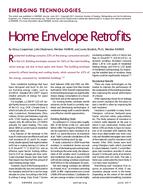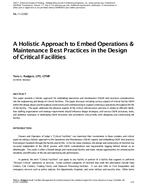A theoretical and untested model for describing performance and productivity is presented in which performance (P) is equal to the product of an individual’s ability (A) and his or her motivation or drive (D), plus an operational factor (O) that consists of five variables – selection, supervision, communication, training, and environment. Emphasis is placed on the multiplicative function of ability and drive. Explains how highly motivated individuals of average ability can exhibit better performance than individuals with the same ability who are poorly motivated. Implications for the engineering and design communities as they relate to the operational factors are discussed, and the physical (sound, lighting, thermal), personal (age, gender), and adaptive (clothing, exposure time, social makeup) variables of the Rohles ergonomic model of the man-machine-environment system are identified.
KEYWORDS: personnel, performance, productivity, psychology, selecting, training, supervising, communicating, physiology, behaviour, environment, ergonomics, engineers, designers
Citation: Symposium, ASHRAE Trans. 1994, Vol.100, Part 2
Product Details
- Published:
- 1994
- File Size:
- 1 file , 670 KB
- Product Code(s):
- D-17542


